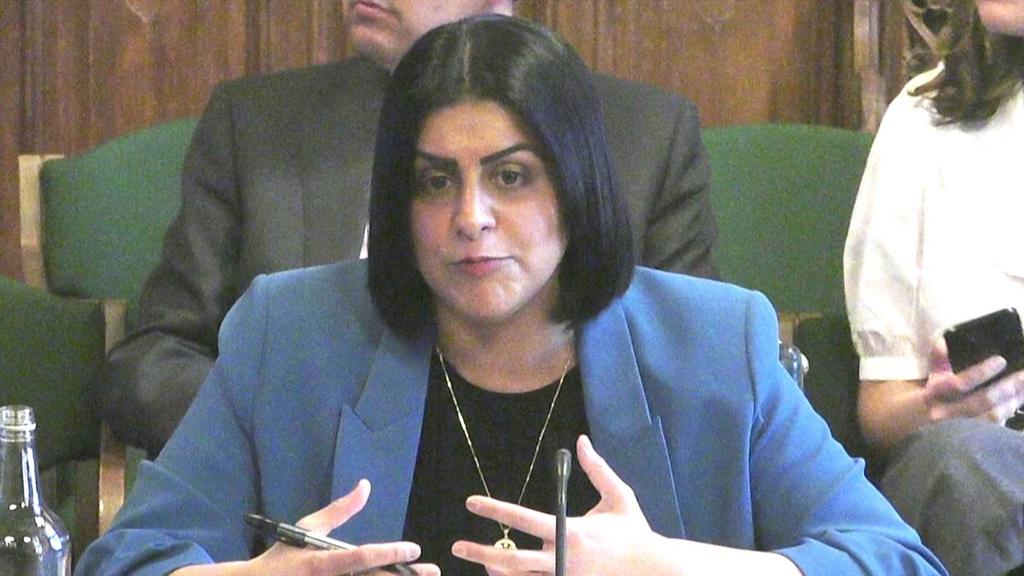The Justice Secretary has stated that challenging the legitimacy of the Supreme Court is “absolutely unacceptable” following its decision that the term “woman” is defined by biological sex.
Appearing before Parliament’s Human Rights Joint Committee, Shabana Mahmood emphasised that judges at the UK’s highest court “provided legal clarity in their decision, which is precisely their role”.
While women’s rights advocates have welcomed the ruling, some transgender campaigners argue it fails to consider the nuances of biology, and a former transgender judge has announced plans to appeal to the European Court of Human Rights.
Mahmood commented: “It is disappointing that certain voices have chosen to question the Supreme Court or cast doubts on its legitimacy.”
In its judgement, the Supreme Court determined that the words “woman” and “sex” in the 2010 Equality Act refer specifically to biological women and biological sex.
Consequently, transgender women, who are biologically male but identify as women, may be excluded from women-only spaces.
The court stressed that trans people remain protected against discrimination under equalities legislation, and that this legal definition does not disadvantage this “potentially vulnerable group”.
The Equality and Human Rights Commission issued interim guidance following the verdict, stating trans women should not access women’s facilities in workplaces or public-facing services. This also applies to trans men, who are biologically female.
However, the guidance also notes trans people should never be left without appropriate facilities to use.
Mahmood’s comments came a day after Dr Victoria McCloud, the UK’s only openly transgender judge, announced she intends to appeal the ruling to the European Court of Human Rights.
Dr McCloud, who resigned from her High Court position last year, argues that both the Supreme Court’s decision and the equality regulator’s new guidance infringe on her human rights, leaving her feeling “contained and segregated”.
She further suggested the judgement did not sufficiently consider the human rights arguments that trans people might present, and described being left with the legal contradiction of being regarded as “two sexes at once”.
Some trans advocates have voiced disappointment, arguing that, in practice, it can be challenging for services to confirm an individual’s biology and noting intersex cases as evidence of the complexity of biological sex.
This Supreme Court ruling followed a lengthy legal challenge by For Women Scotland, a campaign group contending that sex-based protections should apply exclusively to those born female, citing safety concerns about trans women accessing female facilities.
To the committee, Mahmood said the Supreme Court had “approached things with considerable sensitivity”.
She noted: “The judges fulfilled their duties and aimed to balance protecting minority communities from discrimination, while providing legal certainty.”
Giving evidence to the Human Rights Joint Committee, the Justice Secretary also addressed government policy regarding transgender prisoners.
Mahmood said the current approach “strikes the right balance”, while confirming that, following the Supreme Court’s clarity, the policy would be reviewed to determine if further adjustments are necessary.
She added that the vast majority of trans women prisoners are currently housed in male estates, and that no trans inmates had been moved into women’s prisons since she took office in July last year.
According to 2023-24 prison service figures, there are 295 transgender prisoners in England and Wales—51 in female prisons, 244 in male facilities.
The Justice Secretary also made clear: “No trans woman convicted of rape or serious violence who retains male genitalia would ever be considered for placement in the women’s estate.”
Wallyford Primary School and Letham Mains Primary School will now have signage clearly designating toilets by sex.
First Minister Eluned Morgan has said the Supreme Court’s decision on the definition of “woman” will carry “significant implications for public services”.
Organisers report that Labour, the only party registered to march at the parade, was informed it would not be allowed to participate.
From next season, participation in competitive matches in Scotland will be restricted to those born biologically female.
Northern Ireland’s Equality Commission is preparing to publish updated official guidance.

